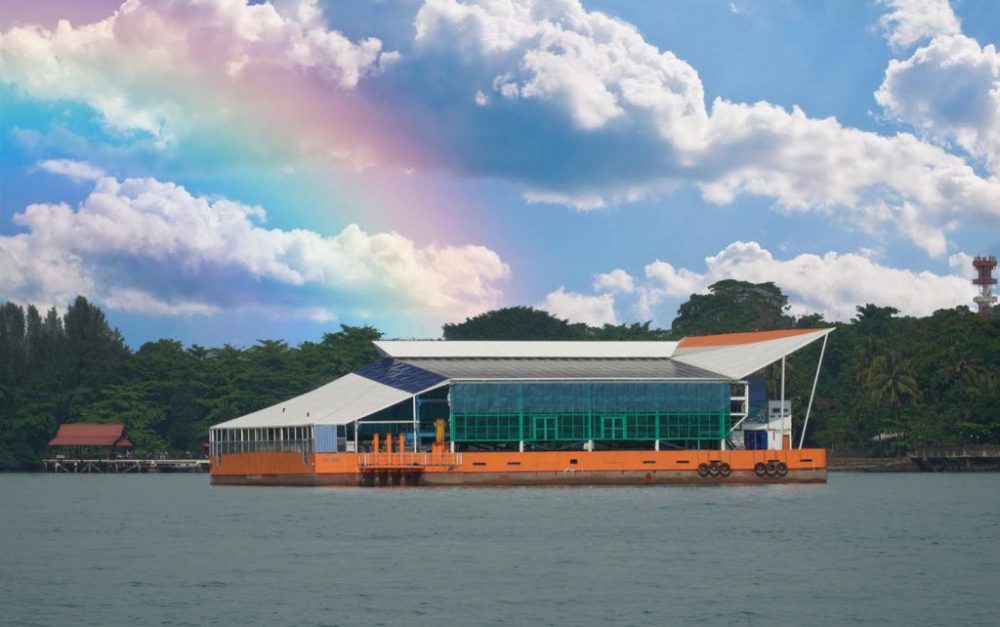The Singapore government will set aside S$60 million ($45.2 million) for the creation of a new fund to help farmers in the city-state harness technology that can boost domestic food production.
Presenting the country’s annual budget in parliament, finance minister Heng Swee Keat said the Agri-Food Cluster Transformation Fund is intended to “continue supporting technology adoption in the agrifood sector,” replacing the earlier Agriculture Productivity Fund that had been set up in 2014.
He cited the example of Eco-Ark, a high-tech fish farm based in the waters off Singapore which raises food species including barramundi, grouper, and red snapper in modern enclosures that keep out the sea’s currents.
According to Heng, Eco-Ark is able to produce 20 times more fish than traditional ‘kelong‘ – local, small-scale fish farms that dot the coastlines of Singapore, Malaysia, and Indonesia, typically using open-net cages which expose the animals to currents and environmental threats such as oil slicks and algal blooms.
More details of the new fund will be made available at a later date, he added.
The new fund is just the latest in a string of moves made by the Singapore government to shore up the tiny, densely populated city-state’s domestic food production capabilities.
Last week, it unveiled its Green Plan 2030 – a broad policy initiative featuring a range of ambitious 10-year sustainability goals. These include the planting of 1 million more trees across the city, a 30% reduction in per capita landfill waste, and the creation of a “carbon services” sector that could potentially serve as a trading hub for the wider Southeast Asia region.
In 2019, the government announced its ’30 by 30′ policy agenda, aiming to produce at least 30% of its nutritional needs domestically by 2030 — up from less than 10% today — while also strengthening and securing its external food sources. In April last year, the Singapore Food Agency established the S$30 million ($22.6 million) 30×30 Express grant scheme to help local agrifood producers rapidly increase production in three key categories – eggs, fish, and leafy vegetables.
Agrifoodtech firms are flocking to Singapore, with Perfect Day the latest to land. Read more here
On the foodtech front, too, Singapore has been making strides. In December, it became the first country in the world to approve a ‘lab-grown’ meat product for sale, giving the green light to US startup Eat Just‘s cellular chicken bites. Its innovation agency, Enterprise Singapore, has partnered with investors and accelerators including AgFunder-backed GROW to develop the domestic foodtech ecosystem and attract foreign entrepreneurs to its shores. [Disclosure: AgFunder is AFN‘s parent company.]
The city-state’s sovereign fund Temasek has invested close to $5 billion into the agrifood sector over the past five years, backing corporates and startups in areas such as ag biotech, alt-proteins, vertical farming, and commodities. It is also establishing an international foodtech innovation center in partnership with A*STAR, Singapore’s national science agency.
Heng suggested that Singapore could call on its past experience in large-scale water desalination and land reclamation to guide its future development in areas such as food resilience and waste reduction.
“Technology is [a] game changer and will open new possibilities. We harnessed technology to overcome our water and land constraints, and will do the same for climate change,” he said.
Comment? News tip? Story idea? Email me at [email protected] or find me on LinkedIn and Twitter





